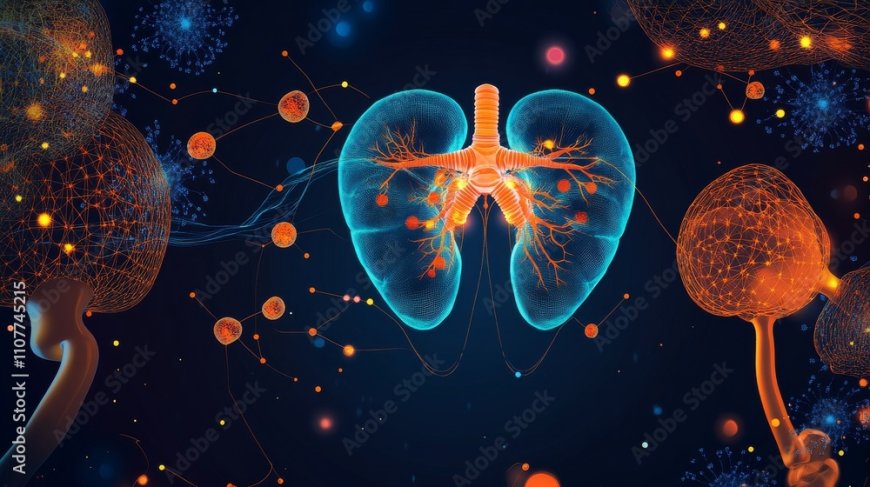Hormonal Harmony: Understanding Your Body’s Natural Balance for Better Health
Struggling with fatigue, weight gain, or mood swings? Learn how to naturally balance your hormones through diet, sleep, stress management, and lifestyle changes for optimal well-being.

Hormones are the body’s silent messengers, controlling everything from energy levels and metabolism to mood, sleep, and reproductive health. When these chemical signals are in balance, we feel vibrant, focused, and strong. But when they’re out of sync, the effects can range from fatigue and weight gain to anxiety, digestive issues, and even chronic health conditions.
In this guide, we’ll explore the role of hormones in your body, the signs of imbalance, and natural ways to support hormonal health for overall well-being.
What Are Hormones and Why Do They Matter?
Hormones are produced by the endocrine system—a network of glands that regulate vital processes such as growth, metabolism, immune function, and reproduction. Some key hormones and their functions include:
- Insulin – Regulates blood sugar levels and energy storage.
- Cortisol – Known as the "stress hormone," it helps manage the body's response to stress.
- Estrogen & Progesterone – Essential for reproductive health, menstrual cycles, and mood regulation in women.
- Testosterone – Supports muscle mass, bone density, and libido in both men and women.
- Thyroid Hormones (T3 & T4) – Control metabolism and energy production.
- Melatonin – Governs sleep cycles and circadian rhythm.
When these hormones are balanced, they work in harmony to keep you feeling your best. But lifestyle factors, diet, stress, and aging can disrupt this balance, leading to unwanted symptoms.
Signs of Hormonal Imbalance
Hormonal imbalances can manifest in various ways depending on which hormones are affected. Some common signs include:
???? Chronic Fatigue – Low thyroid hormones or adrenal dysfunction can cause persistent tiredness.
???? Weight Fluctuations – Insulin resistance or cortisol imbalances can lead to unexplained weight gain.
???? Mood Swings & Anxiety – Estrogen, progesterone, and cortisol imbalances can trigger mood disturbances.
???? Sleep Issues – Melatonin disruptions can cause insomnia and poor sleep quality.
???? Skin Problems – Acne, dryness, or excessive oiliness can indicate hormonal fluctuations.
???? Low Libido – Testosterone or estrogen imbalances may reduce sex drive in both men and women.
Natural Ways to Support Hormonal Health
1. Prioritize a Nutrient-Rich Diet
What you eat plays a crucial role in hormone production and balance. To keep your endocrine system in check:
???? Healthy Fats – Avocados, nuts, seeds, and olive oil support hormone production.
???? Lean Proteins – Grass-fed meat, fish, eggs, and legumes provide essential amino acids.
???? Cruciferous Vegetables – Broccoli, kale, and cauliflower help detox excess estrogen.
???? Antioxidant-Rich Foods – Berries, dark chocolate, and green tea fight inflammation.
2. Manage Stress Levels
Chronic stress triggers excess cortisol production, which can lead to weight gain, anxiety, and even digestive issues. Combat stress with:
???? Meditation and deep breathing to lower cortisol.
???? Daily movement and outdoor walks to reset your nervous system.
???? Relaxing baths with Epsom salts to replenish magnesium and calm the mind.
3. Optimize Sleep Quality
Poor sleep disrupts melatonin and growth hormone production. To improve sleep:
???? Stick to a consistent sleep schedule to regulate circadian rhythms.
???? Avoid blue light exposure from screens before bedtime.
???? Drink herbal teas like chamomile or valerian root to promote relaxation.
4. Exercise, But Don’t Overdo It
Physical activity helps regulate hormones, but excessive exercise can increase cortisol and disrupt balance.
????️ Strength training supports testosterone and metabolism.
???? Yoga and Pilates reduce cortisol and support adrenal function.
???? Moderate cardio (like brisk walking) improves insulin sensitivity.
5. Support Gut Health
A healthy gut microbiome plays a crucial role in hormone regulation.
???? Probiotic-rich foods like yogurt, kefir, and kimchi enhance gut bacteria.
???? Fiber-rich foods like flaxseeds and oats help detox excess hormones.
6. Balance Blood Sugar Levels
Frequent blood sugar spikes can lead to insulin resistance, which affects weight, energy, and mood.
????️ Eat balanced meals with protein, healthy fats, and fiber.
???? Avoid refined sugar and processed carbs to prevent insulin spikes.
When to See a Doctor
If you suspect a hormonal imbalance is affecting your health, consult an endocrinologist or functional medicine specialist. Blood tests can help assess hormone levels and guide treatment options.
Conclusion
Hormonal health is the foundation of overall wellness. By making small yet impactful lifestyle changes—such as eating nutrient-dense foods, managing stress, improving sleep, and staying active—you can naturally restore balance and feel your best.
Your body is always working to maintain harmony—give it the right tools, and it will reward you with vitality, energy, and long-term health. ????✨
What's Your Reaction?
 Like
0
Like
0
 Dislike
0
Dislike
0
 Love
0
Love
0
 Funny
0
Funny
0
 Angry
0
Angry
0
 Sad
0
Sad
0
 Wow
0
Wow
0



















































